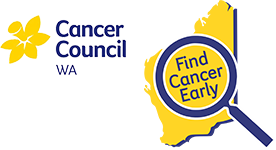Don’t ignore bowel cancer test, urges Dr.
As with all cancers, the earlier bowel cancer is found, the greater the chance of successful treatment.
This article was written by Michael Traill and published in the Narrogin Observer on 14 March 2019
Narrogin general practitioner Dr Kath Comparti is urging people to have a bowel screening, after recent research found bowel cancer is rising in young Australians.
A recent study by the Cancer Council has found the incidence of bowel cancer increasing in Australians under the age of 50, making the disease the third most commonly diagnosed cancer in Australia, with about 17,000 new
diagnoses estimated in 2018.
“Doing your bowel screening test is important,” Dr Comparti said. “Bowel cancer often has no early warning signs, however 90 per cent of bowel cancers can be successfully treated if found early.”
To help raise awareness of bowel cancer and increase participation in the screening program, the Cancer Council is offering funding to community groups to host local events that will provide information on bowel cancer screening.
Dr Comparti said screenings could be done at home. “The good thing is the test comes to your house and can be done at home — no appointments required,” she said.
“By raising awareness about bowel cancer, the symptoms and the importance of using the screening kit when it’s received in the mail, more lives can be saved.”
Cancer Council Wheatbelt regional education officer Melissa Pickering said early detection was key to treating bowel cancer.
“As with all cancers, the earlier bowel cancer is found, the greater the chance of successful treatment,” Ms Pickering said.
“If you notice bowel cancer symptoms, such as blood in your poo more than once, or runny poo, a change in bowel habits, an unusual pain, lump or swelling in the tummy, unexplained weight loss, tiredness, or loss of appetite for more than four weeks, you need to visit your GP without delay and not participate in screening.
“Screening is for healthy people without symptoms.”
